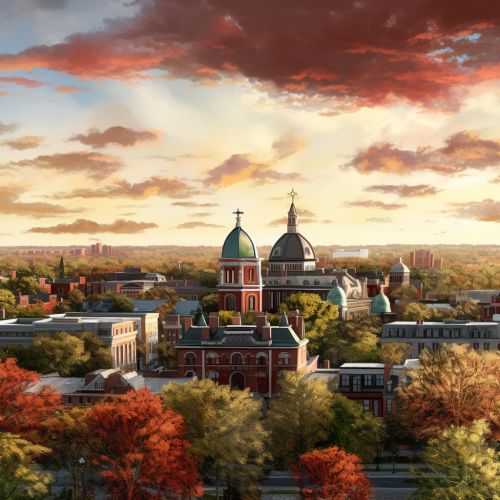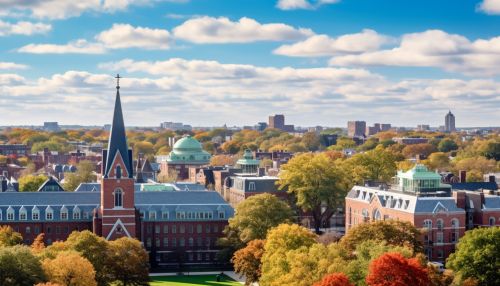Henry-Russell Hitchcock
Early Life and Education
Henry-Russell Hitchcock was born on April 3, 1903, in Boston, Massachusetts. He attended Middlesex School and Harvard University, where he developed a keen interest in architecture and art history. After completing his undergraduate studies, Hitchcock pursued his master's degree at Harvard's Graduate School of Design.


Career
Hitchcock started his career as a professor at Wesleyan University in 1929. He later taught at Smith College and New York University. Hitchcock's academic career was marked by his deep understanding of architectural history and his ability to articulate complex architectural concepts in a comprehensible manner.
In 1932, Hitchcock co-organized the International Style exhibition at the Museum of Modern Art in New York with Philip Johnson. This exhibition introduced modern European architecture to an American audience and played a significant role in shaping the architectural discourse in the United States.
Hitchcock's seminal work, "The International Style: Architecture Since 1922", co-authored with Johnson, was published in conjunction with the exhibition. The book defined the principles of the International Style and became a key reference in the study of modern architecture.
Contributions to Architecture
Hitchcock's contributions to the field of architecture are manifold. His writings and teachings have significantly influenced the understanding and appreciation of architecture. His work has helped to establish architectural history as a distinct and respected discipline within academia.
Hitchcock is particularly known for his work on the International Style. His writings on this style have provided a comprehensive understanding of its principles and its impact on the architectural landscape. Hitchcock's work has also shed light on lesser-known architects and architectural movements, contributing to a more inclusive understanding of architectural history.
Later Life and Legacy
Hitchcock retired from teaching in 1968 but continued to write and lecture on architecture. He passed away on February 19, 1987, in New York City.
Hitchcock's legacy is marked by his profound influence on the study and understanding of architecture. His work continues to be a valuable resource for students, scholars, and practitioners of architecture. Hitchcock's contributions to the field have earned him a place among the most respected architectural historians of the 20th century.
